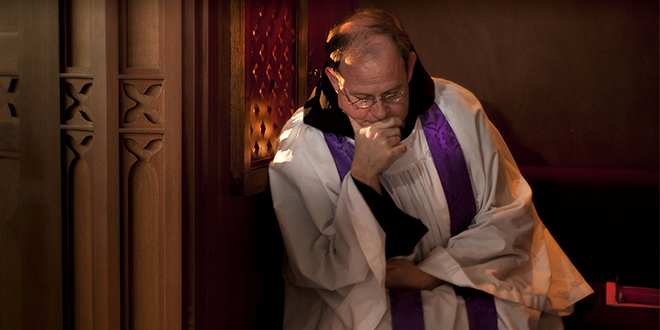
Can a priest testify against you in North Carolina or is there some special privilege that you can assert in order to prevent them from testifying? We write many blog topics on many matters involving criminal law. Some may wonder where we come up with them. In this blog, we will confess that a lot of the ideas come from watching television. Unfortunately, that is also the same place people get their knowledge about issues in criminal law, and they are usually certain that all of it is true (it’s usually not true or accurate to North Carolina criminal law, by the way). One situation that we see on television a lot is a priest or other clergyman asserting that his parishioner may assert some sort of special privilege about private communication between himself and a parishioner.
Today, we will talk about whether or not that is true, and if it applies in North Carolina. *Spoiler Alert*- it really is a thing! In this blog, we will discuss communication between clergymen and communicants. Like all of our blogs, this is intended for informational purposes only and is not intended as a substitute for the advice and counsel of a criminal defense attorney.
Is communication between a priest and me privileged?
Throughout this blog, we may use the term “priest”, but this would apply to a rabbi, pastor, imam, or any other title for any other religious leader/advisor. In short, confessions you make to that person are exempt from certain situations in that that person cannot be made to testify against you in a North Carolina court. This law is covered under North Carolina General Statute 8-53.2, and states the following:
- “No priest, rabbi, accredited Christian Science practitioner, or a clergyman or ordained minister of an established church shall be competent to testify in any action, suit, or proceeding concerning any information which was communicated to him and entrusted to him in his professional capacity, and necessary to enable him to discharge the functions of his office according to the usual course of his practice or discipline, wherein such person so communicated such information about himself or another is seeking spiritual counsel and advice relative to and growing out of the information so imparted, provided, however, that this section shall not apply where communicant in open court waives the privilege conferred.”
What does this mean?
In the context of a criminal case, the accused is innocent until proven guilty and the government has the duty to prove the defendant guilty beyond a reasonable doubt. In a criminal trial, this is done through testimony and other evidence.
This law makes it so that the defendant’s priest cannot provide testimony against him if the all the requirements of the statute are met.
If you have been charged with a crime, contact us. Gilles Law handles state and federal criminal cases in North Carolina and South Carolina.
